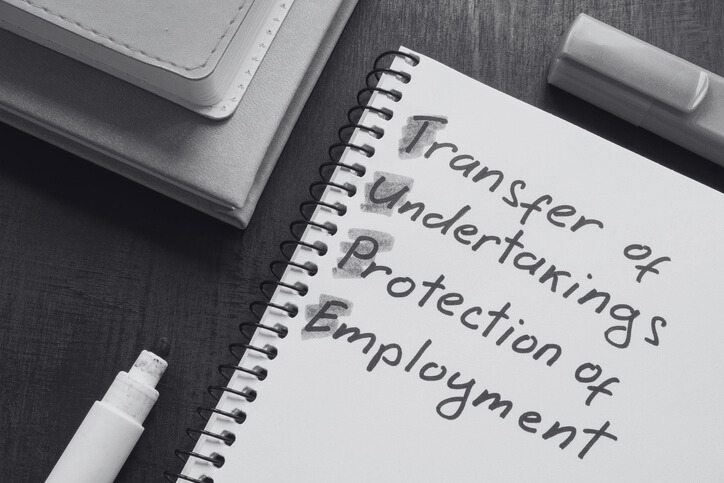In the recent case of Gallagher v McKinnnon’s Auto and Tyres Limited, the Employment Appeal Tribunal (EAT) had to consider whether the employer’s conduct during pre-termination settlement negotiations amounted to exertion of undue pressure. If so, evidence of those negotiations would be admissible as evidence in the employee’s unfair dismissal hearing.
There are two main circumstances when details of pre-termination negotiations cannot be used as evidence in subsequent Tribunal proceedings: where the conversation is protected under section 111A of the Employment Rights Act 1996 (ERA) and where the negotiations are ‘without prejudice’.
Negotiations can only be ‘without prejudice’ where an existing employment dispute is being settled. On the other hand, section 111A only applies to pre-termination negotiations relating to ordinary unfair dismissal. This means that negotiations in the latter scenario would be admissible in evidence where the subsequent claim relates to an automatically unfair reason for dismissal, discrimination, or breach of contract. Evidence of a protected conversation may also be admitted by a Tribunal if the employer has behaved improperly. Although the ERA does not specify what constitutes improper behaviour, the examples of undue pressure, harassment and victimisation are included in the statutory Acas Code of Practice on Settlement Agreements. The Code states that undue pressure could include failing to give an employee reasonable time to consider a settlement offer or stating, before disciplinary proceedings have started, that the employee will be dismissed if they reject a proposal.
Mr Gallagher was employed by McKinnon’s Auto and Tyres Limited as a branch manager. During his two months’ sickness absence, the company found that his role could be covered by two directors. At his return-to-work meeting, he was therefore offered an exit package which included an enhanced redundancy payment of £10,000. Mr Gallagher was informed that if he accepted the offer, the parties would sign a settlement agreement, but that if he rejected it, the company would go through a redundancy procedure with him. He was given 48 hours to consider this proposal in principle. A further meeting was then held with him to discuss his redundancy and the possibility of alternative employment. He did not accept the settlement offer and was dismissed by reason of redundancy.
Mr Gallagher brought an unfair dismissal claim in the Employment Tribunal and tried to rely on the pre-termination discussions as evidence of unfairness. The ‘without prejudice’ principle did not apply because there was no actual or contemplated legal dispute at the time of those discussions. The company argued, however, that the negotiations were inadmissible under section 111A of the ERA. Mr Gallagher claimed that this did not apply because the company had acted improperly by misrepresenting the meeting as a return-to-work interview, saying that he would be dismissed if he rejected the offer, and putting undue pressure on him to accept the offer within 48 hours.
At a preliminary hearing to determine this issue, the Tribunal held that the return to work meeting qualified as a protected conversation and that there had been no undue pressure on Mr Gallagher.
The EAT has now dismissed Mr Gallagher’s appeal, confirming that the company’s actions did not amount to improper behaviour for the purposes of section 111A. Although it was not ideal for redundancy to be raised at Mr Gallagher’s return to work meeting, which had clearly shocked him, the EAT confirmed that this did not amount to impropriety. In addition, it noted that the 48-hour time limit was reasonable for him to consider the initial proposal. If he had accepted the redundancy package, he would have been given a further period to consider a written settlement agreement. The EAT also concluded that Mr Gallagher had not been told he would be dismissed if he rejected the offer, only that a redundancy process would commence, including looking at alternative roles.
This ruling means that evidence of the fact and content of the pre-termination negotiations will not be admissible at the full, final hearing of Mr Gallagher’s unfair dismissal claim.
In order to avoid the costs and risks of tribunal proceedings, employers often consider offering a settlement package at an early stage of any process which could end in termination of employment, such as redundancy, disciplinary or capability procedures. This decision provides welcome clarification that Tribunals are likely to apply a high bar when assessing whether there has been improper behaviour or undue pressure in relation to those settlement negotiations. The Acas Code of Practice on Settlement Agreements states that a minimum period of ten days should be given to employees to enable them to consider a written settlement agreement. In this case, the employer was able to show that the 48-hour limit only applied to its verbal offer and was reasonable in the circumstances. However, it is important to note that each case will be decided on its own facts and circumstances. Employers can minimise the legal risks by conducting negotiations in good faith, ensuring that no improper threats are made as regards dismissal, and allowing sufficient time for employees to consider an offer and take advice.






